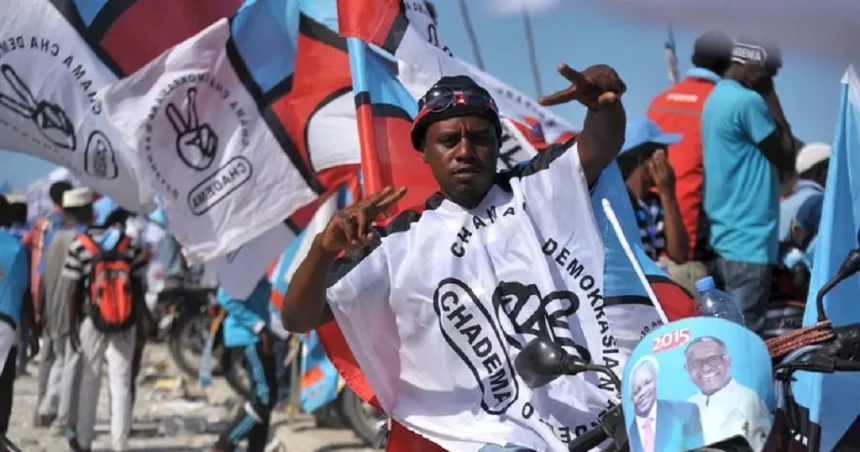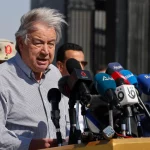Tanzania’s opposition parties have been accused of preaching water but drinking wine after a study revealed lack of internal party democracy during their elections and primaries.
The study on intra-party democracy in Tanzania, commissioned by the University of Dodoma and published last month, concluded that party elections are usually stage-managed to endorse the incumbent, particularly in cases where party constitutions do not specify clear succession paths.
“The possibility of another candidate defeating the incumbent chairperson is generally very low and the candidate selections mostly feature one aspirant who amasses almost all the party membership votes,” the study says.
Intra-party democracy in Tanzania’s opposition camp has been a regular talking point among political observers for quite some time amid reports of leadership manipulation or power struggles afflicting majority of the 19 registered political parties.
The consensus is that the majority of party leaders preach water but drink wine as they rarely embrace democracy within their parties as they demand at the general election.
The latest study findings, which were authored by UDOM political science lecturer Melkisedek Kaijage under the theme Assessing Competitiveness of Political Party Leadership Selection in Tanzania, brought the subject back into sharp focus ahead of Tanzania’s local government elections in October this year and general election in 2025.
The country’s second most popular opposition party ACT-Wazalendo recently gained plaudits for achieving a smooth change of leadership which saw long-serving leader Zitto Kabwe step down in line with the party’s constitution that fixed term limits.
Mr Zitto, who held the topmost post of Party Leader for 10 years before handing over the baton to Dorothy Semu in internal elections earlier in month, said in his farewell address that transforming the party into a genuinely democratic institution was what he was aiming for as his legacy.
“We taught other political parties how to organise an internal election and bring in new leaders in a civilised manner,” he said in what appeared to be a veiled reference to the main opposition party Chadema where chairman Freeman Mbowe has held the position for 24 years.
Civic elections
Chadema is expected to hold its internal elections in June this year with all indications showing that Mr Mbowe will be endorsed to continue as chairman, especially after the party recently resolved to go ahead with preparations for the civic elections despite reservations over the recent passage of new election laws that appear to favour the ruling CCM.
The party is currently in the process of installing new leaders at ward, district, regional and zonal levels nationwide to oversee the exercise of selecting candidates for the civic polls, and Mr Mbowe has issued instructions for credible candidates to be fielded for all seats that are up for grabs in the elections “without fail.”
The Chadema boss, however, is not the only opposition party leader who has been accused of overstaying and clinging on to power. Others are John Cheyo of the United Democratic Party and Hashim Rungwe of Chama cha Ukombozi wa Umma (Chaumma) who have led the parties they founded for 30 and 11 years respectively without elections.
Prof Ibrahim Lipumba has stayed at the helm of the Civic United Front (CUF) since 2019 when he toppled the late Seif Shariff Hamad in an internal party coup that resulted in Hamad’s departure to ACT-Wazalendo, taking about 150 CUF members with him.
NCCR-Mageuzi, at one time Tanzania’s strongest opposition party, is still trying to put its house in order following the 2022 ouster of chairman James Mbatia, which was only confirmed after a bruising court battle.
Mr Mbatia had been the chair for 22 years after taking over from party founder Augustine Mrema who spearheaded a spirited NCCR-Mageuzi presidential campaign in 1995, finishing runners-up to the ruling Chama Cha Mapinduzi’s Benjamin Mkapa with 30 percent of the vote in Tanzania’s first elections under a restored multiparty system.
But an internal powerplay also saw Mr Mrema surrender the party leadership mantle to Mr Mbatia and at the same time switch allegiance to the Tanzania Labour Party (TLP) where he remained chairman until his death in August 2022.
TLP is scheduled to hold a long-delayed internal election on March 27 to fill the seat of chair that has remained vacant ever since. The Office of the Registrar of Political Parties blamed the delay on internal power struggle, which necessitated its intervention.
According to the UDOM study findings, “candidate selections (for intra-party elections) are generally not competitive when assessed against parameters such as incumbent success rate, number of candidates and vote share among them, and the role of party conventions.”
It cited Chadema and CUF as examples of parties that “occasionally feature more than one candidate in leadership elections in order to camouflage competition” while noting that “single candidacy” remained a strong tradition in CCM.
“Relevant laws should be redefined while also strengthening their enforcement mechanisms to compel political parties to cherish democratic principles in their internal businesses,” it proposed.



